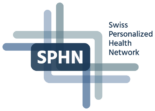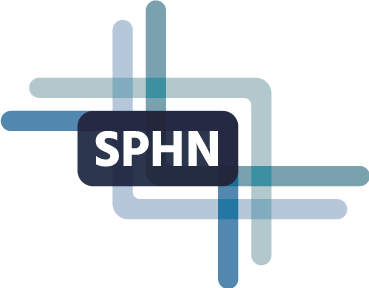7 December 2023
In comparison to other countries, Switzerland has a very good healthcare system and is known as one of the strongest locations for research and innovation. With respect to digitalization of the healthcare system, Switzerland however has a large backlog.
On 22 November, the Federal Council approved the ‘DigiSanté’ program to promote the digital transformation of the healthcare system over the coming 10 years. The dispatch of a corresponding commitment credit (Verpflichtungskredit) of CHF 392 million was submitted to Parliament. With ‘DigiSanté’, the Federal Council aims to improve—in the long run—the quality of treatment, efficiency, transparency and patient safety as well as to strengthen research. To this end, the Confederation will coordinate and align various digital initiatives of the actors in the healthcare system.
SPHN highly welcomes such a program towards the implementation of a Swiss Health Data Space and is committed to explore synergies with the SPHN Data Coordination Center (SPHN-DCC). In preparation for ‘DigiSanté', SPHN is a member of the national ‘Expert Group on Data Management in the Health Sector’ since 2022, aiming to develop and implement national standards for the healthcare sector and to facilitate dialogue between the relevant stakeholders. In this context, SPHN contributes a research-oriented perspective to the group and shares its expertise on data interoperability, data infrastructures, and sharing of health-related data for further use.
How the digital transformation of healthcare in Switzerland can be made a success was also the topic of the “Science et Politique à table!” event for members of Parliament, organized by the Swiss Academies of Arts and Sciences on 5 December 2023. Short input presentations by Prof. Torsten Schwede (University of Basel), Prof. Murielle Bochud (Unisanté) and Prof. Urs Frey (University Children’s Hospital Basel), complemented with expert opinions by Prof. Beatrice Beck Schimmer (University of Zurich), Prof. Manuela Eicher (University of Lausanne) and Prof. Catherine Jutzeler (ETH Zurich) were discussed with interested members of Parliament. It was emphasized that the national parliament has recently passed several motions. However, a concerted effort and strong coordination between the cantons and the Confederation are now needed to establish binding requirements and targeted incentives. In addition, low-hanging fruit should be tackled at an early stage so that added value for patients and healthcare providers can be realized quickly, in order to then move forward with the design of a comprehensive and seamless data ecosystem.
A summary of the discussion and the presentations of the event can be found here (in German/French).
Press release on Digisanté (in German)
More information about DigiSanté (in German)

